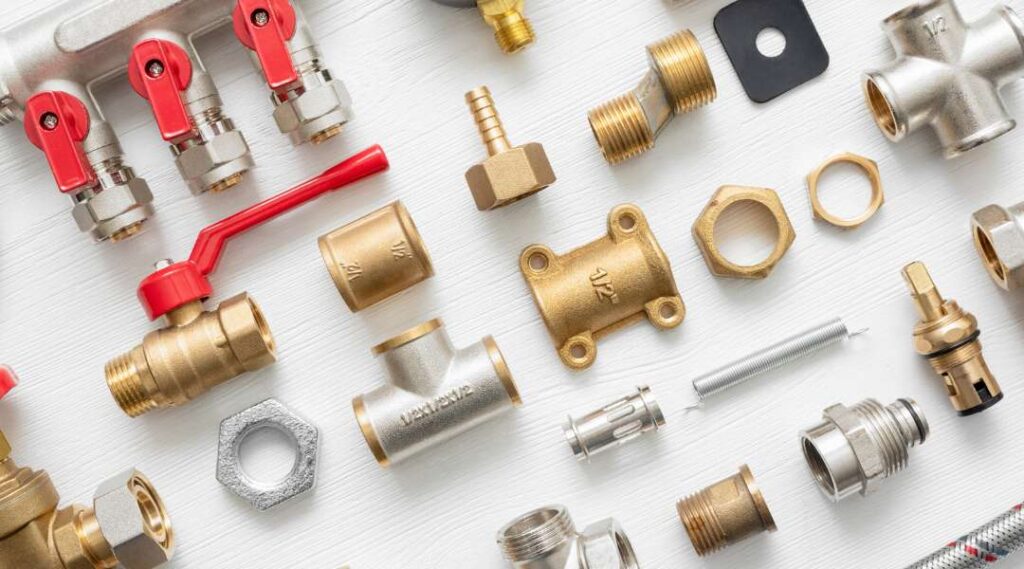Separating commercial from domestic plumbing reveals a sharp contrast in the obstacles pros face every day. The scale of projects vastly differs; a single-family home doesn’t equate to a bustling shopping center when it comes to plumbing needs.
You can’t get away with flimsy materials in a commercial setting. Heavy use demands extra-sturdy construction. Every step up in system size brings a corresponding increase in the installation and maintenance fray, making for a more arduous management process.
Local codes shape safety requirements differently across residential and commercial spaces, too – something only seasoned plumbers navigate with ease thanks to specialized tools and deep expertise. Whether you need new pipes put in or old ones fixed, these projects have got you covered.
The Scale of Projects and Material Durability
When you’re dealing with commercial plumbing, think bigger and more complex. Unlike in a home setting, these systems cater to places like restaurants or hotels. Imagine the chaos when a hotel’s toilets stop working or a restaurant can’t wash its produce – that’s where commercial plumbing contractors come into play.
They tackle big jobs ensuring every tap and toilet functions as it should across entire buildings. Commercial setups often use high-grade fixtures designed to handle heavy usage without frequent breakdowns. This means apartment complexes rely on them for major repairs, from fixing leaks to addressing flood damage swiftly, so residents aren’t inconvenienced for long.
Remember, while residential systems might seem simpler due to their scale of operation with fewer users, commercial settings have higher strain requirements, making durability key.
Complexity in Installation and Maintenance Needs
In commercial settings, plumbing complexity skyrockets. Unlike homes serving just a family or two with standard bathrooms and kitchens, commercial sites like stadiums demand vast water systems to serve thousands daily. Here’s where the pros come in.
Commercial plumbers are adept at navigating these large-scale operations efficiently. They’re not only installing but ensuring everything from sizable boilers to intricate backflow prevention devices complies tightly with regulations beyond what your home might ever see. And let’s talk upkeep; whereas you might call a plumber for occasional maintenance at home, businesses rely on structured programs to prevent any disruption that could halt operation.
A crucial step given their high usage rates. For those managing such properties or facing sudden plumbing emergencies, expert guidance is vital. Not only keeping things running but also aligning with health codes strictly monitored in commercial spaces more than anywhere else.
So yes, while pipes and faucets are common ground across all buildings. The scale of need between our living rooms and places we visit couldn’t be starker.
Codes Compliance Variations for Safety Standards
When diving into the realm of plumbing, it’s vital to grasp how commercial and residential sectors differ significantly regarding code compliance and safety standards. Commercial plumbing systems face stricter state codes due to their complex nature and heavy usage. These systems serve hundreds daily, heightening wear and tear risk compared to a single household system.
Consequently, commercial projects require more frequent inspections by skilled plumbers with deep industry knowledge. Essentials that go beyond what’s typically needed in residential settings. Commercial plumbers tackle vast networks of pipes within buildings like malls or hospitals.
They’re equipped for intricate repairs not seen in home environments. Their job often demands swift adaptation; they work around business hours, sometimes establishing temporary setups mid-project without shutting down operations. A scenario seldom faced by their residential counterparts.
Understanding these distinctions clarifies why specialized expertise is non-negotiable in commercial plumbing, underscoring its complexity over home-based systems where challenges are less demanding but no less important.














